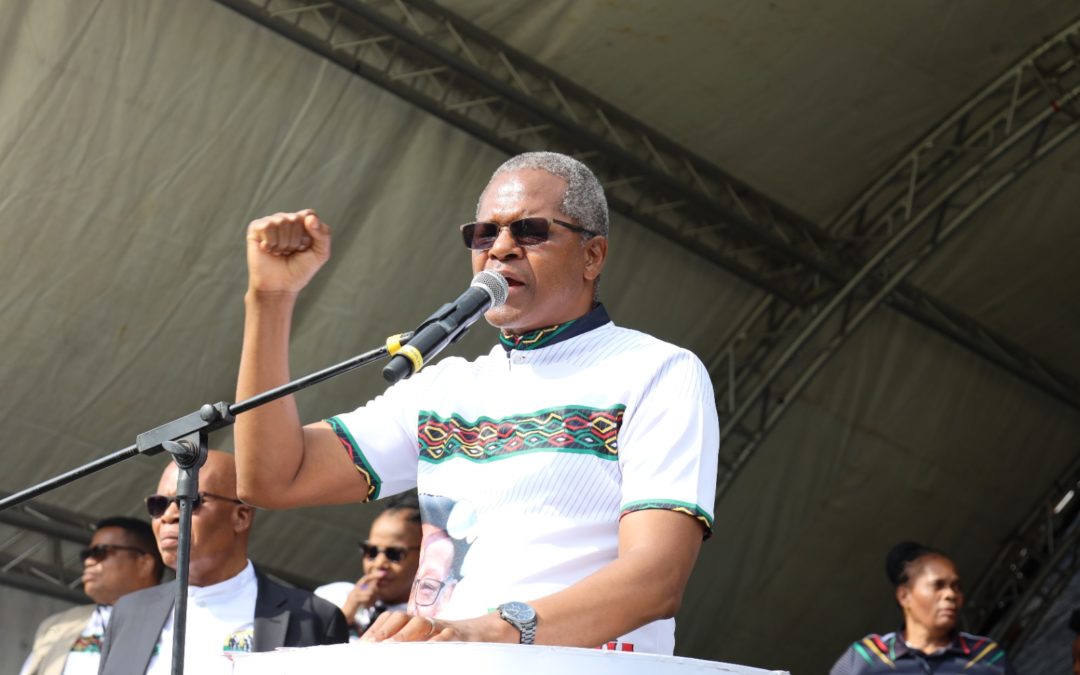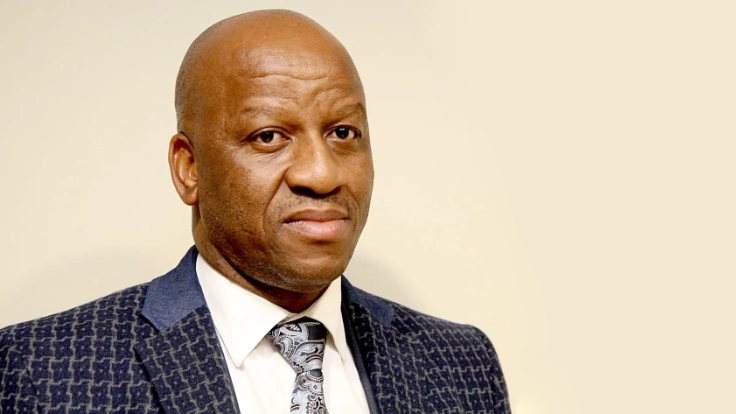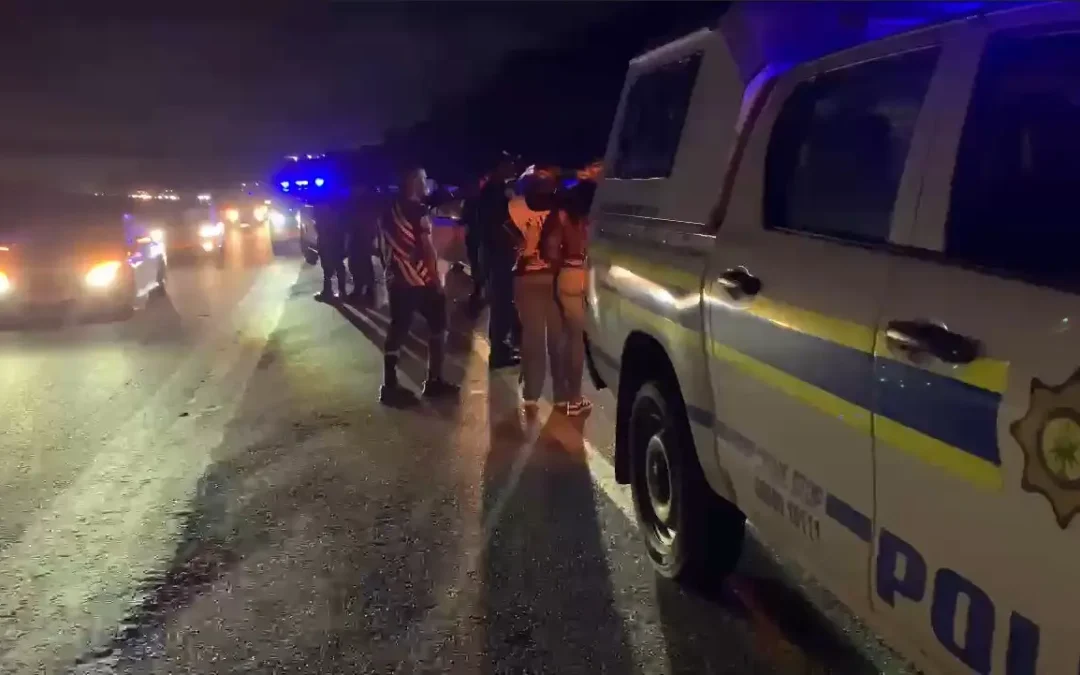INTRODUCTION OF HIS MAJESTY THE KING
BY
PRINCE MANGOSUTHU BUTHELEZI MP
TRADITIONAL PRIME MINISTER TO THE ZULU MONARCH AND NATION
FROM THE TIME OF THE REIGN OF
KING CYPRIAN BHEKUZULU NYANGAYEZIZWE KA SOLOMON,
INKOSI OF THE BUTHELEZI CLAN
AND PRESIDENT OF THE INKATHA FREEDOM PARTY
Isandlwana: 25 January 2019
His Majesty the King of the Zulu Nation, King Goodwill Zwelithini kaBhekuzulu;
His Excellency the President of the Republic of South Africa, Mr Cyril Matamela Ramaphosa;
His Excellency the Minister of Arts and Culture, the Honourable Mr Nathi Mthethwa;
The Honourable Premier of KwaZulu Natal, Mr Thembinkosi Willies Mchunu;
Programme Director and KwaZulu Natal MEC for Arts and Culture, the Honourable Mrs Bongiwe Sithole Moloi;
His Worship the Mayor of Umzinyathi District Municipality, Councillor Petros Mthandeni Ngubane;
Chairperson of the KwaZulu Natal House of Traditional Leaders, Inkosi Phathisizwe Chiliza, and all our amaKhosi;
Trustee of the Royal Welsh Regimental Museum in Brecon, Ms Dorcas Cresswell;
Members of the Zulu Royal Family;
The Royal Welsh Regiments;
The Regiments of the Zulu Nation;
Members of the British Diehard Re-enactment Team;
Distinguished guests.
One hundred and forty years ago, two nations met on this battlefield. Before that day, the invasion of Zululand was just another skirmish in Africa, and back home in Britain interest in its progress was lukewarm. Her Britannic Majesty’s regiments knew that they were better armed, and experience of skirmishes throughout the British Empire led them to believe that the battle here would be short-lived and thoroughly successful.
But what happened at Isandlwana on 22 January 1879 changed everything. Isandlwana became a singular moment in history, with far-reaching consequences. It earned for our nation unprecedented veneration and rattled the confidence of the greatest colonial power. It foreshadowed the employment of the full might of the British army against the Zulu, a greater force than was used to conquer the whole of India. It etched in our psyche the strength of our nation, and it sealed the fate of the Zulu kingdom.
On that day, the sun went dark. King Cetshwayo’s warriors emerged, regiment upon regiment, washing over the British Redcoats in a wave of stabbing iklwa, cowhide shields and raw ferocity. In the words of one of the few British survivors, Lieutenant-Colonel Crealock, “…hardly a man could have escaped…with such an enemy”.
When the dust settled on Isandlwana, the soil ran red with blood. Thousands of men lay dead and dying: warriors alongside soldiers. But the victory was undeniably ours. My great grandfather, the Commander-in-Chief of the King’s regiments, mourned one of his sons, Mtumengana, while my grandfather, Mkhandumba, survived his wounds.
Our entire nation celebrated, for we had achieved an overwhelming victory.
It was three weeks before the news of Isandlwana reached London. But the British soldiers in Zululand were so shaken that Lord Chelmsford instituted a Court of Enquiry just days after the battle, in an attempt to determine what had gone wrong. He knew that he would need to account to the Secretary of State for War, and more so to the British public, who would be stunned.
Indeed, the full report from the Court of Enquiry was eventually published in The London Gazette, along with page after page of the names of those who had perished. It contained accounts from the few survivors, one of whom was Captain Essex of the 75th Regiment. He described the events as follows –
“…the enemy, dashing forward in a most rapid manner, poured in at this part of the line. In a moment all was disorder, and few of the men… had time to fix bayonets before the enemy was among them using their assegais with fearful effect. I heard officers calling to their men to be steady; but in a few seconds the retreat became general…”
As real as are the deaths and victory on the side of King Cetshwayo’s warriors, so too are the deaths and losses among the Redcoats of Her Majesty Queen Victoria. The presence today of the Royal Welsh Regiment, as we remember the Battle of Isandlwana, is historic. It speaks of reconciliation and peace. Although we were once enemies, Zulu and British have come together as friends to remember our shared past.
I am reminded of a line from that iconic film “Zulu” which portrayed the subsequent Battle of Rorke’s Drift. In the film, Private Cole turns to Colour Sergeant Bourne and asks, “Why does it have to be us?” The response says it all: “Because we're here, lad. Nobody else. Just us.”
It was up to that generation to meet on the battlefield. It is up to us to remember.
This 140th anniversary of the Battle of Isandlwana has been remembered with a series of events, beginning with the preparation of the King’s regiments at Ondini Palace last Sunday. On Tuesday, His Majesty the King led us in a wreath laying ceremony here on the battlefield. Yesterday we gathered at Durban Old Fort to listen to historians and military experts recount some of the lesser known parts of our history.
Today, in the presence of our King, we will witness the re-enactment of the Battle, so that we might remember the acts of bravery, and the terrible losses on both sides.
When we laid wreaths on this battlefield on Tuesday, we acknowledged that the mass graves uncovered here contain the intermingled bones of Zulu warriors and British soldiers. The bones that lay strewn on this battlefield were buried six months after the battle. They were thus gathered together in heaps, under shared cairns of piled stones. They lie together in death.
It is my fervent hope that this commemoration will show the world how reconciliation and peace can emerge out of the ugly conflicts of the past. Our country has been a theatre of war and conflict. But today we stand as a people of peace. We stand in a democracy, where freedom prevails.
I often wonder why, then, do we as a country place ourselves in a tug of war, with some on one side and some on the other. How can that ever win anything? There is no goal but beating the other side, no reward other than winning. We need to all get on the same side and pull ourselves, with one effort, towards a share goal.
Years ago, I had the privilege of taking the salute from the Royal Welsh Regiment during the St David’s Day Parade. The previous year, that honour had been given to none other than Her Majesty Queen Elizabeth II, the descendant of Queen Victoria, whose troops fought on this battlefield. As the descendant of King Cetshwayo, whose warriors met them here, I was deeply honoured.
I felt the same sense of healing and reconciliation that I have felt time and again in my interactions with His Royal Highness the Prince of Wales. When His Majesty our King received His Royal Highness and Her Royal Highness the Duchess of Cornwall, in Ulundi, in November 2011, we lamented the fact that the Prince and I have yet to lay wreaths side by side here at Isandlwana.
Years ago, during his first visit to South Africa, preparations were made for that to be done. But unfortunately, the plan was torpedoed. I know how much it means to His Royal Highness that we preserve the graves of those fought at Isandlwana. He wrote to me about this some time ago. To me, this expresses the strong bonds between us. It is not simply history, but also friendship that ties our nations together.
Knowing this, I feel even more deeply the honour of introducing His Majesty the King of the Zulu Nation, as he addresses us on this, the 140th commemoration of the Battle of Isandlwana.





